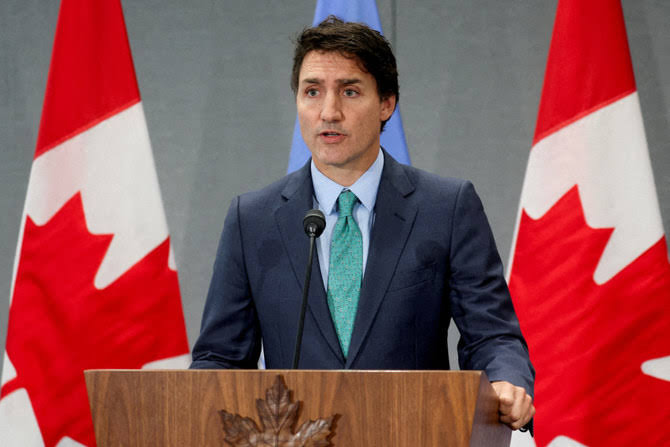
Canada has announced that international students, including those from Nigeria, will be limited to 24 hours of off-campus work per week starting this fall semester. This change replaces the temporary allowance of 40 hours per week that was implemented during the COVID-19 pandemic to address labour shortages.
Prime Minister Justin Trudeau initially introduced the extended work hours as a relief measure during the pandemic, allowing students to manage the high cost of living and support industries suffering from workforce deficits. However, with the waning effects of the pandemic, the Canadian government has decided to revert to a more restrictive work limit, emphasizing that the primary purpose of student visas is education.
“Students who come to Canada must be here to study,” said Marc Miller, Minister of Immigration, Refugees and Citizenship. “Allowing students to work up to 24 hours per week ensures they focus primarily on their studies while still having the option to work if necessary.”
Miller stressed that the new regulation aligns with international best practices and is designed to maintain the integrity of Canada’s student programme. “First and foremost, people coming to Canada as students must be here to study, not work,” he added.
The policy change has sparked mixed reactions. Critics argue that the reduced work hours do not consider the financial realities faced by international students, who often rely on part-time work to cover living expenses. Mateusz Salmassi, Director of Advocacy at the Canadian Alliance of Student Associations (CASA), highlighted the financial challenges posed by the new rule. “Over 200,000 international students will lose at least $5,000 annually due to the reduced work hours,” Salmassi said.
On the other hand, the Canadian government justifies the reduction by emphasizing the need for students to focus on their academics. Research indicates that students working more than 28 hours per week tend to show a decline in academic performance and a higher likelihood of dropping out. However, CASA contests this claim, arguing that their research shows no significant negative impact on academic performance for students working additional hours.
The new policy also impacts students’ career prospects. Part-time jobs provide practical skills and networking opportunities crucial for post-graduation careers. The limitation could affect students’ eligibility for the Post-Graduation Work Permit (PGWP), especially for those enrolled in certain programs under public-private partnerships, which are no longer eligible for the PGWP.
Comparatively, other popular study destinations like Australia, the United States, Germany, and France offer more flexible work regulations for international students. This could make Canada a less attractive option for prospective students.
The temporary policy change during the pandemic was a response to labour shortages. The reduction in maximum allowable work hours could significantly impact sectors like retail, hospitality, and food services, which rely heavily on part-time labour. Labour market analysts warn that this shift may lead to labour shortages and increased competition for available workers, potentially driving up wages and operational costs.
Diplomatically, the decision affects countries that send large numbers of students to Canada, necessitating adjustments in educational agreements and diplomatic dialogues. The Nigerian student population in Canada has been growing rapidly, with nearly 18,000 Canadian study permits issued to Nigerians in the first half of 2023 alone.
In contrast to Canada’s restrictive approach, the United Kingdom is considering increasing the work-hour limit for international students or possibly removing it entirely. Prime Minister Rishi Sunak emphasized that this measure is part of a broader strategy to address the UK’s labour shortages.
“Students would have the opportunity to work longer hours, providing much-needed relief to both their finances and the labour market,” Sunak told the Daily Mail. This proposed change comes at a critical time for the UK economy, which is grappling with a labour shortage, particularly in the hospitality and retail industries.
As international students navigate these policy changes, they must weigh the implications on their finances, academic performance, and career prospects. The evolving regulations in Canada and the UK highlight the complex interplay between education policies and labour market needs in attracting and retaining international talent.








